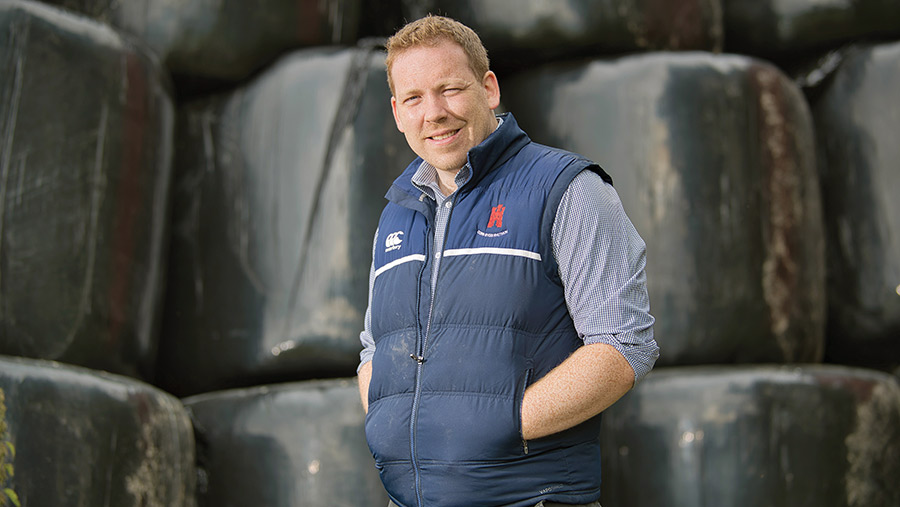Farmer Focus: Breeding ewes achieve 10p/kg premium over fat
 Joe Mault © Richard Stanton
Joe Mault © Richard Stanton The rams went in with the ewes at the end of October, and as I write this I can see the shocking orange raddle (chosen by my father) on several ewes already. It looks like it will be a busy first couple of days at lambing time.
The rams we have chosen this year are mainly hybrid crosses of Texel/Beltex types, although a Dutch Spotted ram has made its way into the team again this year.
We had some success with a Dutch Spotted last year and he has thrown some excellent shapely lambs.
See also: 5 ways to improve flock carbon efficiency before winter
However, that ram didn’t quite manage to make a second year, as he decided to live up to a sheep’s reputation of finding different ways to die and drowned in a puddle (literally).
Another change we have tried this year is targeting the breeding ewe lamb market. Usually, we would sell everything on the prime market, but saw an opportunity to sell some of our surplus lambs.
We were attracted by the chance to sell ungraded lambs to an uplifted price. The lambs were on average 36kg, and we achieved a price of £96 for them. This was 10p/kg above what prime prices were the same week.
It’s a real bonus as these lambs had not been pushed and we don’t need to send them away on tack.
Although it’s not the dizzying heights of the Mule ewe lamb prices of £120 or more, I can see us doing this again, as it worked for us this year.
To raise money for charity, the gentlemen at college have decided to take part in Movember. Although I’m usually found with a 5 o’clock shadow anyway, I thought it best to show willing for a good cause.
It got me thinking about the charity work that the agricultural industry does. Most weekends there is a tractor run, a 24-hour shearathon or some stock in the market getting sold, all in the name of raising money for charity.
I must admit the tractor runs around Christmas are a particular treat, with the tractors all decorated with colourful lights and the noise of the airhorns – they are a firm favourite in the Mault household.

